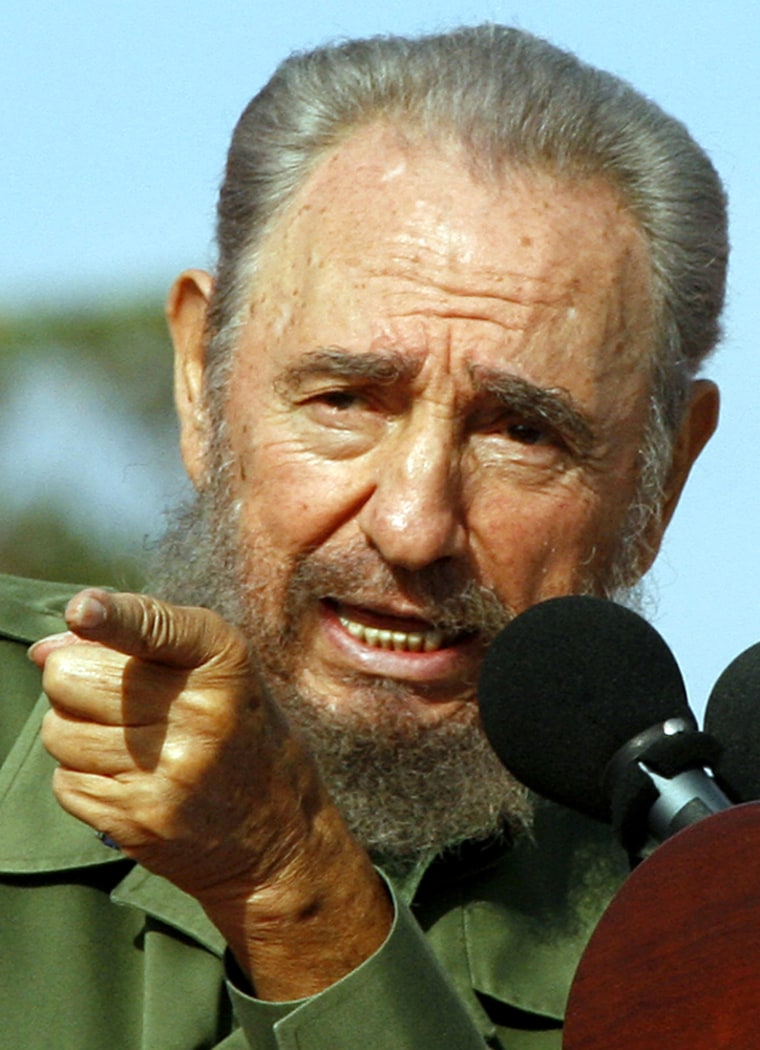What do Cuba’s fatigue-wearing president Fidel Castro and Monaco’s playboy bachelor Prince Albert have in common? Not much other than lofty positions and vast fortunes. It's a diverse group that includes a British queen, an African dictator and a few Middle Eastern potentates. This year, several new faces appear on our list, in part because of the deaths of some well-known rulers, such as Saudi Arabia’s King Fahd. Taking his spot: his half-brother Abdullah Bin Abdulaziz, who became king in August 2005.
Entrepreneurs they’re not. These fortunes are largely derived from inheritances or positions of power. And the lines often blur between what is owned by the country and what is owned by the individual. No surprise then that these estimates are more art than science. For instance, we figure Dubai’s Mohammed Bin Rashid Al Maktoum gets substantial wealth from his government’s stake in banks, aluminum and real estate companies. In contrast, we don’t count Buckingham Palace or the crown jewels as personal possessions of Queen Elizabeth II. Rather they belong to the British nation, and are only entrusted to her care. (See: “A Birthday Fit For A Queen.”)
Even stickier: Proving a dictator controls funds and uses them for personal gain — not for the country’s benefit. Equatorial Guinea’s president Teodoro Obiang Nguema Mbasogo and his government deposited up to $700 million in U.S.’ Riggs Bank. A U.S. Senate subcommittee’s 2004 investigation criticized Riggs for failing to report potential money laundering in the Equatorial Guinea accounts. It also outlined examples of how Riggs allowed Obiang to make cash deposits and withdrawals from accounts he controlled personally. Riggs, which was acquired by PNC last year, later agreed to pay a $16 million fine for failing to report these and other suspicious transactions.
Equatorial Guinea’s embassy insists the money, which was released back to the country, belongs to the government. “Attributing that money to President Obiang’s personal wealth is like saying a person who runs a hospital is worth the amount of revenue the hospital generates,” the embassy spokesperson wrote in an e-mail. A half dozen other sources disagree. “They may say it is the country’s money, but the president does control everything,” says Arvind Ganesan, a director at Human Rights Watch who has studied how the Equatorial Guinea government uses its oil revenue, “Under Obiang, the country's wealth is basically a presidential ATM.”
There is some evidence that Obiang and his family benefited from the funds, or, more generally, from the nation’s decade-long oil boom. Obiang and relatives reportedly own several private businesses in Equatorial Guinea, which has an estimated GDP of $8 billion, including a real estate/construction company, forestry group and a security firm, controlled by his brother. He and his immediate family recently owned two multi-million dollar homes in Maryland. The president’s son reportedly paid $700,000 to rent Microsoft co-founder Paul Allen’s yacht, Tatoosh.
For another controversial dictator, Fidel Castro, we assume he has economic control over a web of state-owned companies, including El Palacio de Convenciones, a convention center near Havana; Cimex, retail conglomerate; and Medicuba, which sells vaccines and other pharmaceuticals produced in Cuba. Former Cuban officials insist Castro, who travels exclusively in a fleet of black Mercedes, has skimmed profits from these outfits for years. To come up with a net worth figure, we use a discounted cash flow method to value these companies and then assume a portion of that profit stream goes to Castro. To be conservative, we don’t try to estimate any past profits he may have pocketed, though we have heard rumors of large stashes in Swiss bank accounts. Castro, for the record disagrees, insisting his personal net worth is zero.
These kings, queens and dictators warrant a separate list from our billionaires, which had a record 793 members this year, because of the difficulties separating their personal fortunes from the wealth of the state. Also, the billionaires' rankings exclude extended family fortunes, and most of these rulers share their fortunes with numerous relatives, like Liechtenstein’s Prince Hans-Adam II, who heads a family fortune that dates back almost nine centuries.
